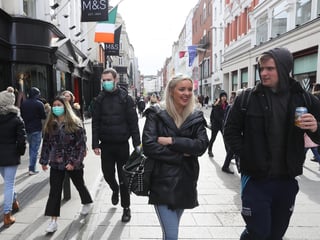Coronavirus: Queen Alexandra Hospital has 'no positive cases' says medical director
and live on Freeview channel 276
Medical director at Portsmouth Hospitals NHS Trust, Dr John Knighton, reassured members of the Health Overview Scrutiny Panel today that the hospital in Cosham has had no positive cases of Covid-19.
Dr Knighton said: ‘It is a fast, evolving situation. We stood up last week and have strengthened towards the end of the week and now hold a daily executive-led planning meeting where that is our sole purpose.
Advertisement
Hide AdAdvertisement
Hide Ad‘It is something that has been consuming my, and many others’, time, trying to get ahead of whatever comes our way, not just responding to national guidance but anticipating.


‘Part of what we will need to do is recognising the sorts of numbers of cases, and they are only estimates, that we are likely going to have to manage, we are going to have to decompress our site significantly.
‘We are not as yet cancelling wholesale elective activity but we are planning how and when we might need to do that to free up capacity particularly side room and isolation capacity.
‘We have not as yet had any positive cases. We are working on how we can limit and reduce the footfall of patients and visitors as much as possible.
Advertisement
Hide AdAdvertisement
Hide Ad‘Of course we are focusing on how we will increase capacity.’


Dr Knighton also told the panel, which met in Portsmouth Guildhall today, that the hospital is currently having to send tests to other sites to be analysed but it is hoped by the end of next week the hospital will be able to get test results on site.
Coronavirus: the facts
What is coronavirus?
COVID-19 is a respiratory illness that can affect lungs and airways. It is caused by a virus called coronavirus.
What caused coronavirus?
The outbreak started in Wuhan in China in December 2019 and it is thought that the virus, like others of its kind, has come from animals.
How is it spread?
As this is such a new illness, experts still aren’t sure how it is spread. But.similar viruses are spread in cough droplets. Therefore covering your nose and mouth when sneezing and coughing, and disposing of used tissues straight away is advised. Viruses like coronavirus cannot live outside the body for very long.
What are the symptoms?
The NHS states that the symptoms are: a dry cough, high temperature and shortness of breath - but these symptoms do not necessarily mean you have the illness. Look out for flu-like symptoms, such as aches and pains, nasal congestion, runny nose and a sore throat. It’s important to remember that some people may become infected but won’t develop any symptoms or feel unwell.
What precautions can be taken?
Washing your hands with soap and water thoroughly. The NHS also advises to cover your mouth and nose with a tissue or your sleeve (not your hands) when you cough or sneeze; put used tissues in the bin immediately and try to avoid close contact with people who are unwell. Also avoiding touching eyes, nose and mouth unless your hands are clean.
Should I avoid public places?
Most people who feel well can continue to go to work, school and public places and should only stay at home and self isolate if advised by a medical professional or the coronavirus service.
What should I do if I feel unwell?
Don’t go to your GP but instead call NHS 111 or look online at the coronavirus service that can tell you if you need medical help and what to do next.
When to call NHS 111
NHS 111 should be used if you feel unwell with coronavirus symptoms, have been in a country with a high risk of coronavirus in the last 14 days or if you have been in close contact with someone with the virus.
Sources: World Health Organisation and NHS
Comment Guidelines
National World encourages reader discussion on our stories. User feedback, insights and back-and-forth exchanges add a rich layer of context to reporting. Please review our Community Guidelines before commenting.
